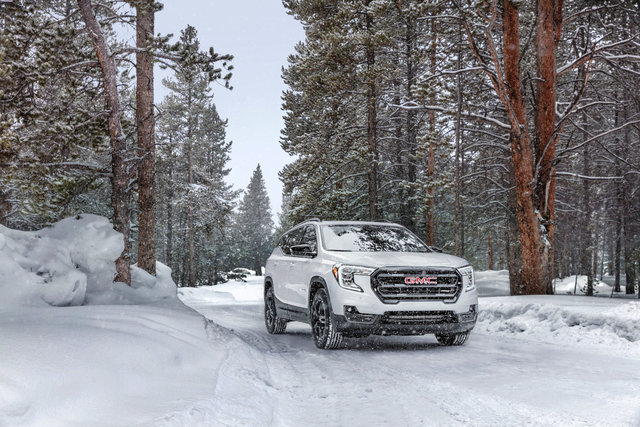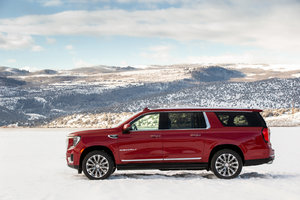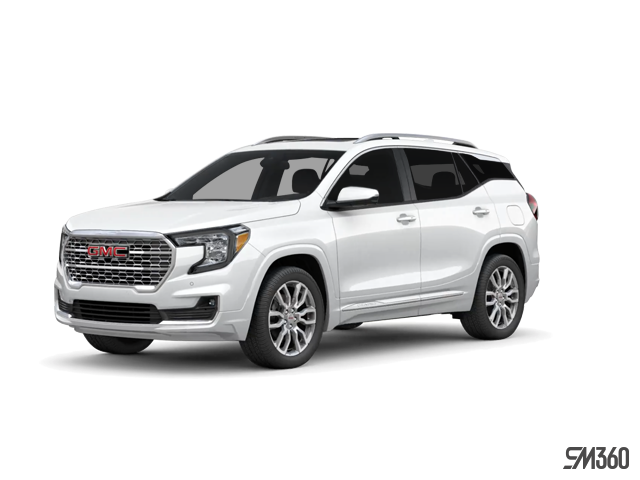The Buick Enclave will receive a comprehensive makeover for the 2025 model year which will include changes to its appearance, its powertrain, and its technology features, but not its already impressive practicality. Here is our first look at this new model. The New Face of Buick The 2025 Buick Enclave is the latest model to adopt the brand’s new design language which can already be seen on the...

You may think that all-season tires are enough to get you through the winter, but the truth is they are not designed for the harsh conditions of cold, snowy, and icy roads. Winter tires are unique in terms of their tread designs and rubber compounds, making them the best choice for driving in challenging winter weather.
Why Winter Tires?
Winter tires are designed to provide the best possible grip and control in low temperatures. The tread patterns of winter tires are specifically designed to bite into snow and channel away water, improving traction on slippery surfaces. Moreover, winter tires have soft rubber compounds that remain pliable in cold temperatures, offering better grip on icy roads and reducing the risk of accidents.
One of the most significant benefits of winter tires is improved stopping distance. Tests conducted by tire manufacturers and industry experts have shown that winter tires reduce stopping distances by up to 25% on snow-covered roads or when the temperature is below freezing. This can make a significant difference in preventing accidents and keeping you and your passengers safe.
Winter tires also offer better handling on snowy and icy roads. The unique tread designs of winter tires give them more biting edges, allowing them to grip the road better in slippery conditions. This design also provides better handling when turning, reducing the risk of skids and loss of control.
Another convincing reason to add winter tires to your GMC or Buick: Many highways in the interior and Northern B.C. require winter tires from Oct 1st to March 31st with some areas requiring winter tires up until April 30th. Therefore, now is the time to install winter tires if you haven’t done so already.
How to choose the right winter tires for your GMC or Buick vehicle?
When it comes to choosing the right winter tires for your vehicle, there are a few key factors to consider. Firstly, you need to make sure that the winter tires you select are compatible with your vehicle. The manufacturer's recommendations will give you an idea of what type and size of winter tires are suitable for your vehicle.
Secondly, you need to consider the driving conditions you'll encounter. If you live in an area with heavy snowfall, you'll need winter tires that are designed to perform well in deep snow. On the other hand, if you live in a city with mostly cleared roads but occasional slush and ice, all-season tires with the ''M+S'' designation might suffice.
Another factor to consider when buying winter tires is their tread depth. A minimum of 4.8 mm of tread depth is recommended for winter driving. You can easily check the tread depth on your winter tires using a tread depth gauge or the "Quarter Test'', which involves inserting a quarter into the tread with the moose’ nose head facing down. If the top of his head is visible, your tires need to be replaced.
Proper maintenance of your winter tires is essential for optimal performance and longevity. Regularly check your tire pressure, rotate your tires every 10,000 km, and have them balanced if needed. Store your winter tires in a dry, cool place during the off-season to prevent cracking and deformation due to temperature changes.
Ken Sargeant GMC Buick is your trusted partner for all your winter tire needs. We offer a wide selection of winter tires from reputable brands, including Michelin, Bridgestone, Continental, and Goodyear. Our expert technicians can help you choose the right winter tires for your vehicle and ensure they are correctly installed and balanced. Plus, we offer convenient scheduling options to fit your busy schedule.
Don't wait until it's too late to switch to winter tires. As the temperature drops, it's time to start thinking about your vehicle's winter readiness. Contact Ken Sargeant GMC Buick today, and let us help you stay safe on the roads this winter.
Other Articles That May Interest You
GMC has revealed a teaser that gives us our first look at the next-generation GMC Terrain, the successor to the brand’s popular compact SUV. Here are some of the things we expect from this new model, which should be fully unveiled later this year. A Bolder Design The 2025 GMC Terrain will benefit from a bolder and more assertive design than the current model, with items such as a larger front...
Buick has now fully unveiled the refreshed 2025 Enclave, the latest version of its luxurious three-row SUV. Thanks to multiple improvements in terms of design, technology, and powertrains, the new Enclave is sure to remain a favourite of families who want more space and comfort than many other SUVs can offer. A modernized appearance The most apparent change for the new 2025 Buick Enclave is, of...










